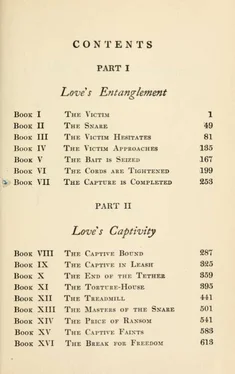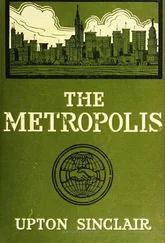Upton Sinclair - Love's pilgrimage
Здесь есть возможность читать онлайн «Upton Sinclair - Love's pilgrimage» весь текст электронной книги совершенно бесплатно (целиком полную версию без сокращений). В некоторых случаях можно слушать аудио, скачать через торрент в формате fb2 и присутствует краткое содержание. Год выпуска: 1911, Издательство: New York : M. Kennerley, Жанр: Старинная литература, на английском языке. Описание произведения, (предисловие) а так же отзывы посетителей доступны на портале библиотеки ЛибКат.
- Название:Love's pilgrimage
- Автор:
- Издательство:New York : M. Kennerley
- Жанр:
- Год:1911
- ISBN:нет данных
- Рейтинг книги:4 / 5. Голосов: 1
-
Избранное:Добавить в избранное
- Отзывы:
-
Ваша оценка:
- 80
- 1
- 2
- 3
- 4
- 5
Love's pilgrimage: краткое содержание, описание и аннотация
Предлагаем к чтению аннотацию, описание, краткое содержание или предисловие (зависит от того, что написал сам автор книги «Love's pilgrimage»). Если вы не нашли необходимую информацию о книге — напишите в комментариях, мы постараемся отыскать её.
Love's pilgrimage — читать онлайн бесплатно полную книгу (весь текст) целиком
Ниже представлен текст книги, разбитый по страницам. Система сохранения места последней прочитанной страницы, позволяет с удобством читать онлайн бесплатно книгу «Love's pilgrimage», без необходимости каждый раз заново искать на чём Вы остановились. Поставьте закладку, и сможете в любой момент перейти на страницу, на которой закончили чтение.
Интервал:
Закладка:
§ 7. ANOTHER victim of their fervor was the Rev. Mr. Harding, who stopped in to see them several, times upon his tramps. Thyrsis would never have dreamed of troubling Mr. Harding, but Corydon found "something in him", and would go at him hammer and tongs whenever he appeared. It must have been a novel experience for the clergyman; it seemed to fascinate him, for he came again and again, and soon quite a friendship sprang up between the two. She would tell Thyrsis about it at great length, and so, of course, he had to change his ideas about Mr. Harding.
"Don't you see how fine and sensitive he is?" she would plead.
"No doubt, my dear," said Thyrsis. "But don't you think he's maybe just a bit timid?"
"Timid," she replied. "But then think of his training! And think what you are!"
"Yes, I suppose I'm pretty bad," he admitted.
This discussion took place after he and Mr. Harding had had an argument, in which Thyrsis had remarked casually that modern civilization was "crucifying Jesus all over again." And when Mr. Harding asked for enlightenment, Thyrsis answered, "My dear man, we crucify him according to the constitution. We teach the profession of crucifying him. We invest our capital in the business of crucifying him. We build churches and crucify him in his own name!"
After which explosion Corydon said, "You let me attend to Mr. Harding. I understand him, and how he feels about things."
"All right, my dear," assented Thyrsis. "When I see him coming, I'll disappear."
But that would not do either, it appeared, for Mr. Harding was a conventional person, and it was necessary that he should feel he was calling on the head of the family.
"Then," said Thyrsis, "I'm supposed to sit by and serve as a chaperon?"
"You're to answer questions when I ask you to," replied Corydon.
Through Mr. Harding they made other acquaintances in Bellevue. There was a Mrs. Jennings, the wife of the young principal of the High School; they were simple and kindly people, who became fond of Corydon, and would beg her to visit them. The girl
was craving for companionship, and she would plead with Thyrsis to accompany her, and subject himself to the agonies of "ping-pong" and croquet; and once or twice he submitted—and so one might have beheld them, at a lawn-party, hotly pressed by half a dozen disputants, in a debate concerning the nature of American institutions, and the future of religion and the home!
Thyrsis seldom took human relationships seriously enough to get excited in such arguments; but Cory-don, with her intense and personal temperament, made an eager and uncomfortable propagandist. How could anyone fail to see what was so plain to her? And so she would bring books and pamphlets, and lend them about. There was a young man named Harry Stuart, a fine, handsome fellow, who taught drawing at the High School. In him, also, Corydon discovered possibilities; and she repudiated indignantly the idea that his soulful eyes and waving brown hair had anything to do with it. Harry Stuart was a guileless and enthusiastic member of the State militia; but in spite of this sinister fact, Cbrydon went at him. She soon had her victim burning the midnight oil over Kautsky and Hyndman; and behold, before the autumn had passed, the ill-fated drawing-teacher had resigned from the State militia, and was doing cartoons for the "Appeal to Reason"!
§ 8. CORYDON'S excitement over these questions was all the greater because she was just then making the discovery of the relationship of Socialism to the problems of her own sex. Some one sent her a copy of Charlotte Oilman's "Women and Economics"; she read it at a sitting, and brought it to Thyrsis, who thus came to understand the scientific basis of yet another
article of his faith. He went on to other books—to Lester Ward's "Sociology", and to Bebel's "Woman", and to the works of Havelock Ellis. So he realized that women had not always been clinging vines and frail flowers and other uncomfortable things; and the hope that they might some day be interested in other matters than fashion and sentiment and the pursuit of the male, was not a vain fantasy and a utopian dream, but was rooted in the vital facts of life.
Throughout nature, it appeared, the female was often the equal of the male; and even in human history there had been periods when woman had held her own with man—when the bearing of children had not been a cause of degradation. Such had been the case with our racial ancestors, the Germans; as one found them in Tacitus, their women were strong and free, speaking with the men in the council-halls, and even going into battle if the need was great. It was only when they came under the Roman influence, and met slavery and its consequent luxury, that the Teutonic woman had started upon the downward path. Christianity also had had a great deal to do with it; or rather the dogmas which a Roman fanatic had imposed upon the message of Jesus.
It was interesting to note how one might trace the enslavement of woman, step by step with the enslavement of labor; the two things went hand in hand, and stood or fell together. So long as life was primitive, woman filled an economic function, and held her own with her mate. But with slavery and exploitation, the heaping up of wealth and the advent of the leisure-class regime, one saw the woman becoming definitely the appendage of the man, a household ornament and a piece of property; securing her survival, not s by useful labor, but by sexual charm, and so becoming specialized as a
sex-creature. For generations and ages the male had selected and bred in her those qualities which were most stimulating to his own desires, which increased in him the sense of his own dominance; and for generations and ages he taught the doctrine that the proper sphere of woman was the home. If he happened to be a German emperor, he summed it up in the sneer of "Kuche, Kinder, Kirche". So the woman became frail and impotent physically, and won her success by the only method that was open to her—by finding some male whom she could ensnare.
Such had been the conditions. But now, in the present century, had come machinery, and the development of woman's labor; and also had come intelligence, and woman's discovery of her chains. So there was the suffrage movement and the Socialist movement. After the overthrow of the competitive wage-system and of the leisure-class tradition, woman would no longer sell her sex-functions, whether in marriage or prostitution; and so the sex might cease to survive by its vices, and to infect the whole race with its intellectual and moral impotence. So would be set free the enormous force that was locked up in the soul of woman; and human life would be transformed by the impulse of emotions that were fundamental and primal. So Thyr-sis perceived the two great causes in which the progress of humanity was bound up—the emancipation of labor and the emancipation of woman; to educate and agitate and organize for which became the one service that was worth while in life.
§ 9. THE nights were beginning to grow chilly, and they realized that autumn was at hand, and faced the prospect of another winter in that lonely cabin. Paret,
who had come down to visit them, had given it a name— "the soap-box in a marsh." Thyrsis saw clearly that he could not settle down to hard work while they were shut up there. Corydon's headaches and prostrations seemed to be growing worse, and she could simply not get through the winter without some help. As the book was ready, they had some money in prospect, and their idea was that they would buy a farm with a good house. So they might keep a horse and a cow and some chickens; and there might be some outdoor work for Thyrsis to do, instead of trudging aimlessly over the country.
They utilized their spare time by getting the old horse and buggy, and inspecting and discussing all the farms within five miles of them; an occupation which put a great strain upon their diverse temperaments. Thyrsis would be thinking of such matters as roads and fruit-trees and barns—and above all of prices; while Corydon would be concerned with—alas, Corydon never dared to formulate her vision, even to herself. She had vague memories of dilettante country-places with great open fire-places, and exposed beams, and a broad staircase, and a deep piazza, and above all, a view of the sunset. Whenever she came upon any vague suggestion of these luxuries, her heart would leap up— and would then be crushed by some reference to ten or fifteen thousand dollars.
Читать дальшеИнтервал:
Закладка:
Похожие книги на «Love's pilgrimage»
Представляем Вашему вниманию похожие книги на «Love's pilgrimage» списком для выбора. Мы отобрали схожую по названию и смыслу литературу в надежде предоставить читателям больше вариантов отыскать новые, интересные, ещё непрочитанные произведения.
Обсуждение, отзывы о книге «Love's pilgrimage» и просто собственные мнения читателей. Оставьте ваши комментарии, напишите, что Вы думаете о произведении, его смысле или главных героях. Укажите что конкретно понравилось, а что нет, и почему Вы так считаете.












